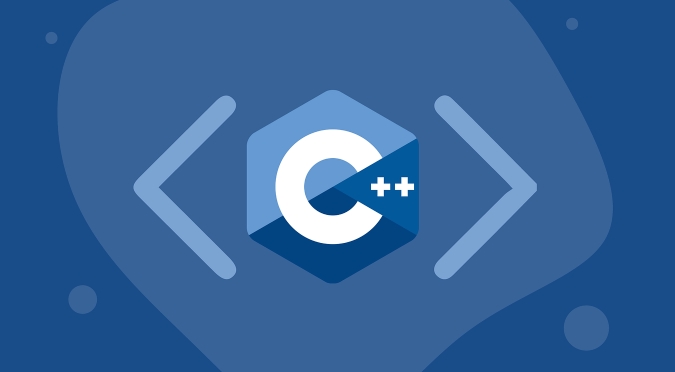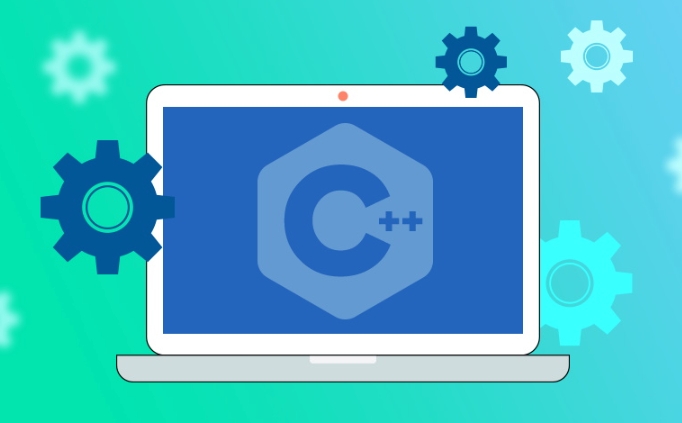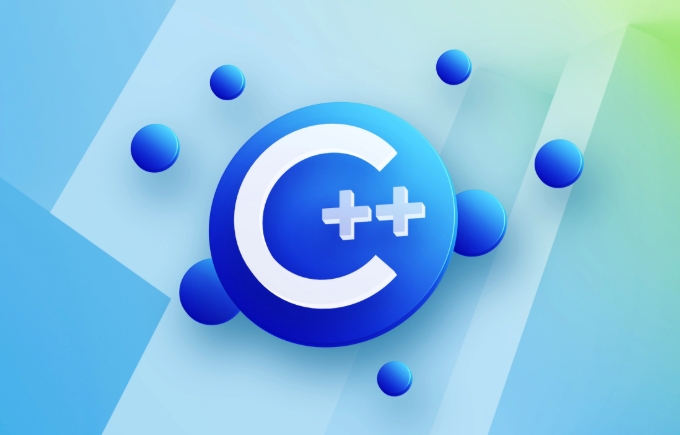Pointers are a key tool for efficient memory operation in C. 1. A pointer is a variable that stores memory addresses, and accesses the target value by dereference (); 2. Common operations include address fetching (&), dereference () and pointer operation (such as p); 3. When using dynamic memory, you need to cooperate with new and delete/delete[] to avoid memory leakage, repeated release and wild pointers; 4. Pointers can be used as function parameters to realize external variable modification and array transfer; it is recommended to practice more to understand its essence, and combine smart pointers to improve security.

Pointers are a basic but critical concept in C. Mastering it well is very helpful for writing efficient and flexible code. Many people will feel that the pointer is a bit wiggled at first, but in fact, as long as you understand the essence, it is not difficult to use.

What is a pointer?
Simply put, a pointer is a variable that stores the memory address . We usually use pointers to indirectly access or modify the value of a variable. for example:

int a = 10; int* ptr = &a;
Here ptr is a pointer to type int , which holds the address of variable a . The value of a can be accessed through *ptr .
A common misunderstanding is to understand pointers and ordinary variables together. In fact, there is a "indirect layer" between them, so pay special attention to this.

Basic operation of pointers
When using pointers, there are three most commonly used operations: address fetching, dereference, and pointer arithmetic.
- Get the address (&) : Get the memory address of the variable.
- * Dereference ( )**: Access the content pointed to by the pointer.
- Pointer operation : For example, adding one to the pointer will jump to the next corresponding data position.
For example:
int arr[] = {1, 2, 3};
int* p = arr; // Point to the first element of the array cout << *p; // Output 1
p ;
cout << *p; // Output 2This is very useful when iterating through arrays or processing strings.
What should be noted is:
- Do not dereference uninitialized pointers
- Avoid accessing freed memory
- Remember
deleteafter using dynamic allocated memory
The relationship between dynamic memory and pointer
C allows us to manually apply memory at runtime, which requires the use of pointers to match new and delete :
int* num = new int(5); // Dynamically allocate an int delete num; // Remember to release int* arr = new int[10]; // Assign an array delete[] arr; // Note that you should use delete[]
This part of the error-prone areas includes:
- Forgot to free memory causes memory leak
- Release the same piece of memory multiple times
- Continue to use pointers (wild pointers) after release
It is recommended to use smart pointers (such as std::unique_ptr or std::shared_ptr ) to automatically manage memory and reduce the chance of errors.
Pointer and function parameters
Sometimes we hope that the function can modify the variable passed in, and at this time we can use a pointer as a parameter to pass the address:
void increment(int* val) {
(*val) ;
}
int a = 5;
increment(&a);This method saves more resources than passing values ??and allows functions to affect external data.
In addition, pointers can also be used to pass arrays to functions:
void printArray(int* arr, int size) {
for (int i = 0; i < size; i)
cout << arr[i] << " ";
}The advantage of writing this way is that the function does not need to know the specific size of the array, it only needs to know the pointer and length.
Basically that's it. The pointer looks complicated, but in fact the core is address and indirect access. You can get started by practicing it a few more times.
The above is the detailed content of How to use pointers in C ?. For more information, please follow other related articles on the PHP Chinese website!

Hot AI Tools

Undress AI Tool
Undress images for free

Undresser.AI Undress
AI-powered app for creating realistic nude photos

AI Clothes Remover
Online AI tool for removing clothes from photos.

Clothoff.io
AI clothes remover

Video Face Swap
Swap faces in any video effortlessly with our completely free AI face swap tool!

Hot Article

Hot Tools

Notepad++7.3.1
Easy-to-use and free code editor

SublimeText3 Chinese version
Chinese version, very easy to use

Zend Studio 13.0.1
Powerful PHP integrated development environment

Dreamweaver CS6
Visual web development tools

SublimeText3 Mac version
God-level code editing software (SublimeText3)

Hot Topics
 C Polymorphism : is function overloading a kind of polymorphism?
Jun 20, 2025 am 12:05 AM
C Polymorphism : is function overloading a kind of polymorphism?
Jun 20, 2025 am 12:05 AM
Yes, function overloading is a polymorphic form in C, specifically compile-time polymorphism. 1. Function overload allows multiple functions with the same name but different parameter lists. 2. The compiler decides which function to call at compile time based on the provided parameters. 3. Unlike runtime polymorphism, function overloading has no extra overhead at runtime, and is simple to implement but less flexible.
 What Are the Different Kinds of Polymorphism in C ? Explained
Jun 20, 2025 am 12:08 AM
What Are the Different Kinds of Polymorphism in C ? Explained
Jun 20, 2025 am 12:08 AM
C has two main polymorphic types: compile-time polymorphism and run-time polymorphism. 1. Compilation-time polymorphism is implemented through function overloading and templates, providing high efficiency but may lead to code bloating. 2. Runtime polymorphism is implemented through virtual functions and inheritance, providing flexibility but performance overhead.
 C : Is Polymorphism really useful?
Jun 20, 2025 am 12:01 AM
C : Is Polymorphism really useful?
Jun 20, 2025 am 12:01 AM
Yes, polymorphisms in C are very useful. 1) It provides flexibility to allow easy addition of new types; 2) promotes code reuse and reduces duplication; 3) simplifies maintenance, making the code easier to expand and adapt to changes. Despite performance and memory management challenges, its advantages are particularly significant in complex systems.
 C Destructors: Common Errors
Jun 20, 2025 am 12:12 AM
C Destructors: Common Errors
Jun 20, 2025 am 12:12 AM
C destructorscanleadtoseveralcommonerrors.Toavoidthem:1)Preventdoubledeletionbysettingpointerstonullptrorusingsmartpointers.2)Handleexceptionsindestructorsbycatchingandloggingthem.3)Usevirtualdestructorsinbaseclassesforproperpolymorphicdestruction.4
 Polymorphism in C : A Comprehensive Guide with Examples
Jun 21, 2025 am 12:11 AM
Polymorphism in C : A Comprehensive Guide with Examples
Jun 21, 2025 am 12:11 AM
Polymorphisms in C are divided into runtime polymorphisms and compile-time polymorphisms. 1. Runtime polymorphism is implemented through virtual functions, allowing the correct method to be called dynamically at runtime. 2. Compilation-time polymorphism is implemented through function overloading and templates, providing higher performance and flexibility.
 C tutorial for people who know Python
Jul 01, 2025 am 01:11 AM
C tutorial for people who know Python
Jul 01, 2025 am 01:11 AM
People who study Python transfer to C The most direct confusion is: Why can't you write like Python? Because C, although the syntax is more complex, provides underlying control capabilities and performance advantages. 1. In terms of syntax structure, C uses curly braces {} instead of indentation to organize code blocks, and variable types must be explicitly declared; 2. In terms of type system and memory management, C does not have an automatic garbage collection mechanism, and needs to manually manage memory and pay attention to releasing resources. RAII technology can assist resource management; 3. In functions and class definitions, C needs to explicitly access modifiers, constructors and destructors, and supports advanced functions such as operator overloading; 4. In terms of standard libraries, STL provides powerful containers and algorithms, but needs to adapt to generic programming ideas; 5
 What Are the Various Forms of Polymorphism in C ?
Jun 20, 2025 am 12:21 AM
What Are the Various Forms of Polymorphism in C ?
Jun 20, 2025 am 12:21 AM
C polymorphismincludescompile-time,runtime,andtemplatepolymorphism.1)Compile-timepolymorphismusesfunctionandoperatoroverloadingforefficiency.2)Runtimepolymorphismemploysvirtualfunctionsforflexibility.3)Templatepolymorphismenablesgenericprogrammingfo
 C Polymorphism: Coding Style
Jun 19, 2025 am 12:25 AM
C Polymorphism: Coding Style
Jun 19, 2025 am 12:25 AM
C polymorphismisuniqueduetoitscombinationofcompile-timeandruntimepolymorphism,allowingforbothefficiencyandflexibility.Toharnessitspowerstylishly:1)Usesmartpointerslikestd::unique_ptrformemorymanagement,2)Ensurebaseclasseshavevirtualdestructors,3)Emp






